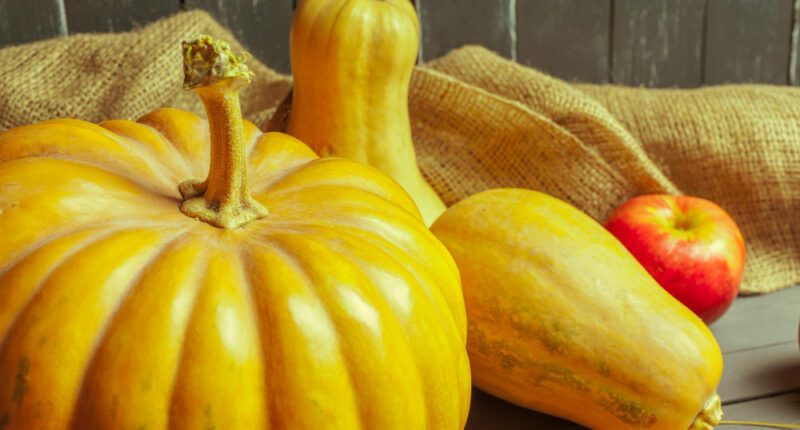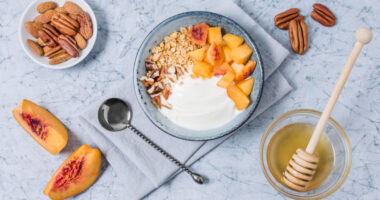Pumpkins aren’t just for Halloween decorations or seasonal pies—they’re a nutrient powerhouse that can benefit your health in numerous ways. Packed with vitamins, antioxidants, and fibre, pumpkin is a versatile ingredient you can easily add to your meals for a range of health benefits. Here are the top reasons to incorporate more pumpkin into your diet.
1. Boosts Immunity
Pumpkin is rich in vitamin A, an essential nutrient that helps strengthen the immune system. Vitamin A aids in the production and activity of white blood cells, which protect the body from infections. Additionally, pumpkin provides vitamin C, which further boosts immune function and helps speed up recovery from illnesses like the common cold.
2. Supports Eye Health
The vibrant orange colour of pumpkin is due to its high beta-carotene content, a type of antioxidant that the body converts into vitamin A. This nutrient is essential for eye health, reducing the risk of age-related macular degeneration and night blindness. Pumpkin also contains lutein and zeaxanthin, antioxidants that further protect the eyes from harmful light waves.
3. Promotes Heart Health
With a good amount of potassium, fibre, and antioxidants, pumpkin is heart-friendly. Potassium is known to help lower blood pressure, while fibre aids in reducing cholesterol levels. Antioxidants like beta-carotene in pumpkin can also decrease the risk of heart disease by fighting free radicals and preventing damage to heart tissues.
4. Aids in Weight Loss
Pumpkin is naturally low in calories but high in fibre, which makes it a great option for weight management. The fibre content in pumpkin helps you feel full longer, reducing the urge to snack between meals. Including pumpkin in your diet can help you manage your weight while still enjoying flavorful and satisfying meals.
5. Improves Skin Health
Pumpkin is beneficial for the skin because of its high levels of beta-carotene and vitamins A and C. Beta-carotene acts as a natural sunscreen, protecting your skin from harmful UV rays, while vitamin C is crucial for collagen production, which keeps the skin firm and youthful. Including pumpkin in your diet can promote a healthy, glowing complexion.
6. Enhances Digestion
The high fibre content in pumpkin supports digestive health by promoting regular bowel movements. Fibre softens the stool, making it easier to pass and reducing the risk of constipation. Additionally, pumpkin’s natural fibre acts as a prebiotic, feeding healthy bacteria in the gut, which improves overall digestive health.

7. Supports Mental Health
Pumpkin seeds are a good source of tryptophan, an amino acid that plays a role in serotonin production—a hormone that regulates mood and promotes feelings of happiness. Eating pumpkin and its seeds may help to boost serotonin levels, potentially improving mood and reducing the risk of depression.
8. Reduces Cancer Risk
Pumpkin’s antioxidants, especially beta-carotene, may lower the risk of certain cancers. Studies have found that diets high in beta-carotene-rich foods may reduce the risk of prostate and lung cancers. Additionally, the vitamin C in pumpkin acts as an antioxidant, protecting cells from damage that can lead to cancer.
9. Helps Manage Blood Sugar Levels
Pumpkin has shown promise in regulating blood sugar levels. Its low glycemic index (GI) means it doesn’t cause rapid spikes in blood sugar. Additionally, pumpkin contains plant compounds that can improve glucose absorption, making it beneficial for individuals with diabetes or those looking to maintain stable blood sugar levels.
10. Good for Post-Workout Recovery
After a strenuous workout, a pumpkin can be an excellent addition to help your body recover. It provides potassium, which is lost through sweat, and helps prevent muscle cramps. The natural sugars and carbs in pumpkin can also restore glycogen levels, aiding in quicker muscle recovery and lessening fatigue.
How to Add More Pumpkin to Your Diet
Incorporating pumpkin into your meals can be simple and delicious. You can add pureed pumpkin to smoothies, soups, or sauces. Roasted pumpkin chunks make a great side dish, while pumpkin seeds are a healthy snack on their own. Try swapping pumpkin puree for oil or butter in baking recipes for a healthier twist.
Pumpkin is a versatile, nutrient-packed food that offers a wide range of health benefits. From boosting immunity and heart health to supporting weight loss and skin health, pumpkin is a valuable addition to a balanced diet. With so many ways to incorporate it into your meals, you can enjoy the delicious taste of pumpkin year-round while reaping these incredible health benefits.









